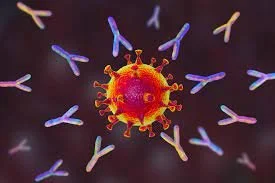ARE TELOMERES OUR MODERN DAY FOUNTAIN OF YOUTH?
What the heck is a TELOMERE and how long are yours?
In the nucleus of each of the billions of cells that compose our bodies, chromosomes make up our DNA and at the end of each and every chromosome you will find small structures called telomeres. These telomeres are the protective casings that protect our chromosomes, like the plastic tips at the end of shoelaces. Without this coating, shoelaces become frayed until they can no longer do their job, just as without telomeres, DNA strands become damaged and our cells cannot do their job.
Telomeres progressively get shorter with time, and their length can be linked to age. Telomere shortening is directly linked to cell division. The shorter telomeres become, the bigger the risk to lose some genomic information during the next cell division, inducing major cell dysfunction.
These caps naturally wear down over time. Each time a cell copies itself, telomeres shorten. They get shorter and shorter until they can no longer protect the cell. The cell then either stops growing or it dies in a process called apoptosis — or cellular suicide. Short telomeres are linked to a weakened immune system, chronic and degenerative diseases like cancer and Alzheimer’s, and early death.
In one study, people over 60 with shorter telomeres had a three times higher risk of dying from heart disease, and an eight times higher risk of dying from an infectious disease.
Each time a cell divides, it loses a bit of its telomeres. An enzyme called telomerase can replenish it, but chronic stress and cortisol exposure decrease your supply. When the telomere is too diminished, the cell often dies or becomes pro-inflammatory. Inflammation is one of the biggest issues we deal with as we age.
Telomeres and Stress
While age and genes have the biggest influence on telomere length, stress follows closely behind. In one study from George Mason University, women with kids had telomeres 4.2 percent shorter, or the equivalent of 11 years, than women without children. According to the researchers, the stress of child-rearing may be to blame. In another study, also of women, those with the highest levels of perceived stress had telomeres shorter by the equivalent of one decade than women who said they experienced less stress. That’s an important finding — how you view your stress has as much bearing on telomere length as environmental stress. Learning to manage and lower your stress is a powerful way to preserve your telomeres and put the brakes on aging.
Another interesting piece of research I came across is the concept we can affect the length of other people’s telomeres if we do not manage our own stress effectively. The true definition of “negative energy”.
The type of stress also matters, and determines how big the impact is on telomere length. While adult stress can shorten telomeres, people who experience multiple traumas like abuse and neglect as children have higher odds of developing shorter telomeres as adults. Exposing the body to many years of high arousal accelerates cellular aging, more than single stressful events. “Childhood events may embed epigenetically and alter gene expression almost permanently”.
If you want to watch a very interesting Ted talk by Nobel laureate Elizabeth Blackburn follow this link. She won her Nobel prize for her groundbreaking research on Telomeres and discusses stress and how we can challenge the effects of telomere shortening.
How you can lengthen and protect your telomeres?
The good news is that you have a lot of control over the wear-and-tear of your telomeres. And even if you have shorter telomeres, it’s not a done deal — you can lengthen them with certain habits and behaviours. Here’s how to do it:
Exercise
Yet another benefit of exercise — it reduces oxidative stress and boosts proteins that help stabilize telomeres. In one study, men and women who didn’t exercise much or at all were biologically older by 10 years than those who were very active. But you don’t need to run a marathon or put in hours each day at the gym. People who do moderate aerobic exercise just 45 minutes, three times a week, have telomeres similar in length to marathon runners.
Meditation
Since how you perceive your stress counts, finding ways to feel more in control is key. Meditation gives you that time and space to sort out your thoughts, so you can recognize which worries are valid, and which are not. This changes your perception and experience of stress. A 2009 paper suggests that mindfulness meditation lowers stress, which in turn could preserve telomeres. Another study found that women who practiced loving kindness meditation (a technique that encourages compassion) had longer telomeres than women who didn’t. Carve out time each day (put it in the calendar if you have to) to quieten your thoughts and focus on your breath. Even a quick five-minute meditation in the middle of your workday can calm your nervous system and do wonders for your sense of wellbeing.
Maintain Healthy Weight
Obesity causes telomeres to wear down quicker. One study found that the loss of telomeres in obese people was equivalent to 9 years of life. One way to keep your weight steady is to practice intermittent fasting — when you cycle in and out of periods of eating and not eating. Intermittent fasting not only boosts weight loss, it makes cells more resilient and promotes cellular repair. It also lowers oxidative stress — when free radicals overpower the antioxidants in the body. Since oxidative stress shortens telomeres, reducing this type of stress will help preserve them.
Nutrition
Many are studying how we can either preserve the length or elongate our telomeres with diet. They have found that a plant-based diet that is rich in folate, antioxidants (vitamin C, vitamin E and selenium), omega-3 fatty acids, and vitamin D is associated with longer telomeres.
Folate/Folic Acid
Why it is good for you: Folate helps us produce new, healthy cells. Supplementing with folic acid prior to conception and during pregnancy reduces the incidence of neural tube defects in developing infants.
Folate-rich foods include: dark leafy green vegetables (spinach, broccoli, asparagus and Brussels sprouts), lentils and beans (pinto, black, navy and kidney). Check out the recipe for Chana Masala I posted. It is rich in fiber, protein, minerals and folate. Plus it is extremely yummy served with riced cauliflower instead of rice.
Antioxidants Vitamin C, Vitamin E and Selenium
Why they are good for you: They combat the free radicals that may cause cell damage or cell death.
Antioxidant-rich foods include: Fruits and vegetables are the best sources of antioxidants, which is why a plant-based diet is often highly recommended.
Vitamin C: citrus fruits and juices, tomatoes and tomato juice, potatoes, green leafy vegetables, strawberries and cantaloupe.
Vitamin E: nuts, seeds and vegetable oils.
Selenium: Brazil nuts, seafood, beef, poultry, dairy products, rice and other grain products.
Omega-3 Fatty Acids
Why they are good for you: They promote heart and brain health and may aid in the prevention and treatment of several diseases. The two main essential omega-3 fatty acids that are considered anti-inflammatory and protective against cardiovascular disease are eicosapentaenoic acid (EPA) and docosahexaenoic acid (DHA).
Omega-3 fatty acid-rich foods include: Fatty fish such as salmon is an excellent source of EPA and DHA, but if you are a vegetarian, green leafy vegetables, nuts and vegetable oils (canola, soy, and flaxseed) provide alpha-linolenic acid (ALA), which is converted in part to EPA and DHA in the body. There are also vegetarian and vegan algae sources of EPA on the market.
Vitamin D
Why it is good for you: promotes calcium absorption and may play a role in a variety of chronic conditions. Interestingly, it is the only vitamin that is synthesized in your skin from sun exposure.
Vitamin D-rich foods include: primarily animal products such as fatty fish (salmon, tuna and mackerel), dairy products, cheese and egg yolks. Mushrooms are one of the only plant-based sources of vitamin D.
If there isn’t already enough evidence to promote a plant-based diet rich in fruits, vegetables, legumes, nuts and seeds, supplemented with reasonable amounts of lean meats and fish add the association with longer telomeres and better aging to the list! Taking a multivitamin, physical activity during leisure time, stress management and meditation are also associated with longer telomeres and therefore better aging. Promote overall health and aging by taking a lifestyle approach that incorporates all of these factors into daily living.





